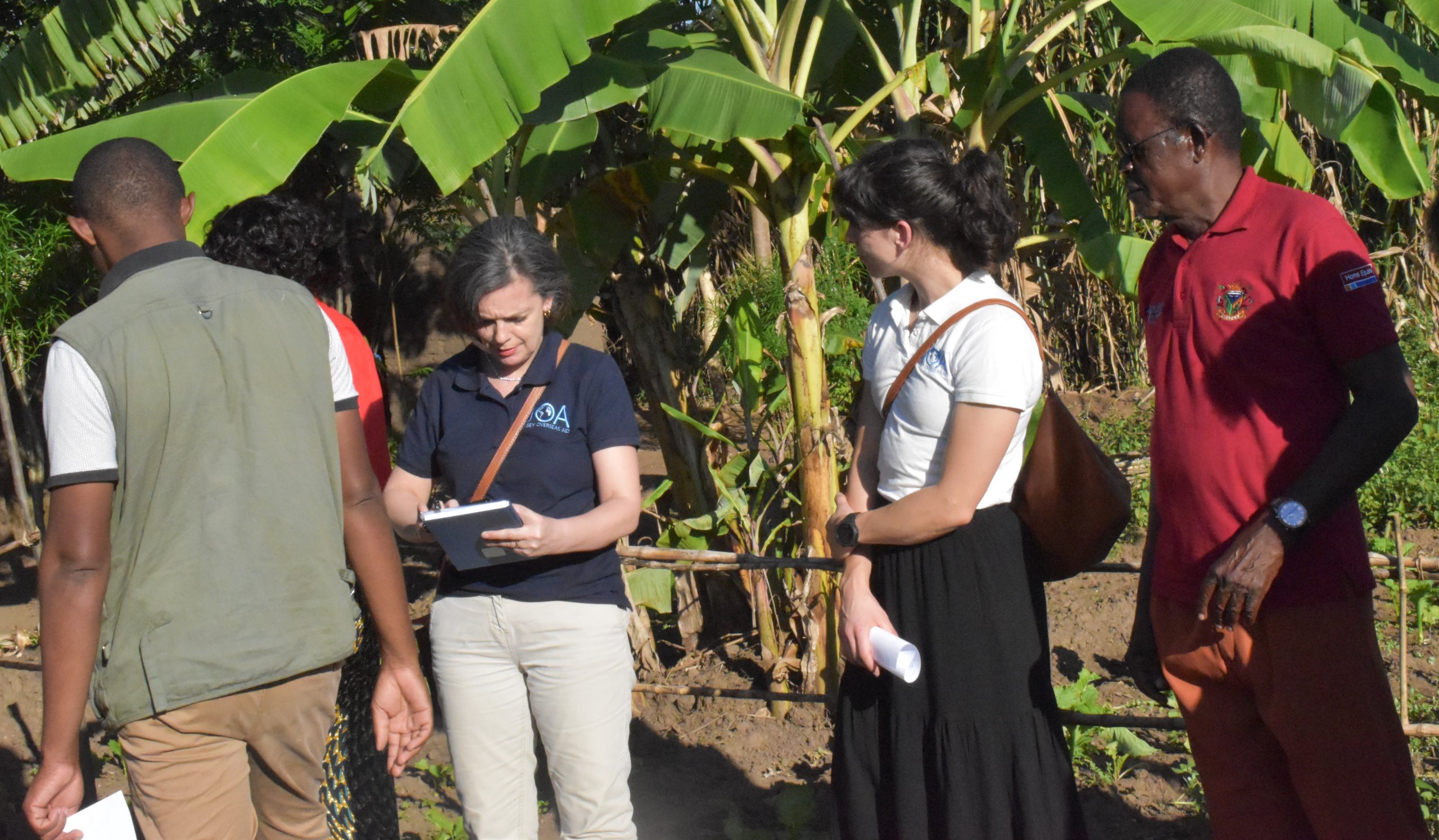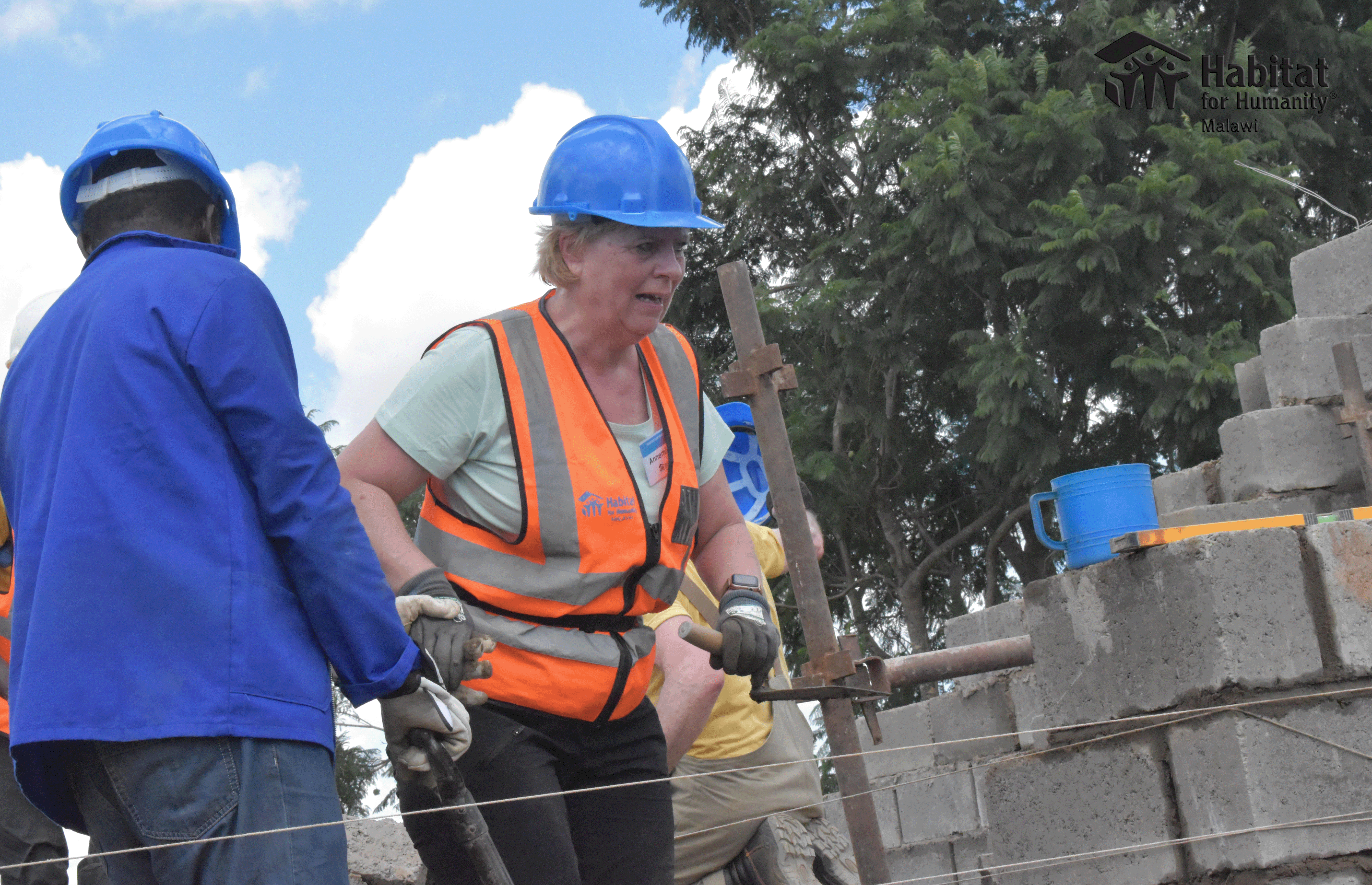Habitat for Humanity Malawi has been implementing an integrated Disaster response project at Mphimbi community, TA Makhuwira in Chikwawa district. This project was funded by United Nations Development Programme (UNDP). Under this project HFHM has constructed 20 improved and disaster resilient houses for the most vulnerable community members. In addition, HFHM also implemented several interventions aimed at improving the water, sanitation and hygiene status of Mphimbi community.
One of the WASH interventions implemented in the area is the construction of a borehole. Before the borehole was constructed community members used to get their water from a borehole located in the nearby village. This was disadvantageous for Mphimbi community members as it meant that they had to walk relatively longer distances to collect the water and also spent more time at the existing borehole due to congestion. With a new borehole constructed within their own vicinity, the community members are now able to access safe water at very short distance. In addition, the problem of congestion at the borehole has been addressed. To ensure sustained use of the borehole, HFHM conducted an Operation and Maintenance (CBM) Training for the Water Point Committee (WPC). The operations and maintenance training was aimed at building the capacity of water point committee to manage and maintain the constructed borehole when damaged.
Figures 1 to 3: A woman draws water from the newly constructed borehole and members of WPC undergo a practical session of borehole management and maintenance
Habitat for Humanity Malawi also triggered Mphimbi community on Community Led Total Sanitation (CLTS). During CLTS triggering it was observed that only about 35% of the households did have some pit latrines while the rest of the household admitted using the nearby bushes to relieve themselves. It was also noted that community members did not practices handwashing and other basic hygiene practices. During the triggering process participants appreciated that using the bush to defecate was a bad practice as it eventually resulted into eating and drinking water contaminated with feaces. Community members therefore agreed that in order to address this problem every household should have their own latrine and ensure that household members are using the latrine when defecating. The participants further agreed that community leaders should conduct a door to door inspection exercise to track progress on this resolution. In order to promote hand washing with soap, community members agreed that every household should install a simple handwashing facility made from locally available materials such as used bottles and poles and to ensure that water and soap are present at all times.
Figures 4 to 6: CLTS triggering in session
In addition to CLTS triggering, HFHM also conducted hygiene promotion in the community. The hygiene promotion took the form of a public event where messages on the dangers of poor practices towards water, sanitation and hygiene were conveyed using various mediums such as songs, drama, and speeches. Messages during the event also centered on sensitizing the community members on how best they can improve their WASH status at community, household and personal level. The event was patronized by government staff from the offices of District Environment Health and District Water Development. In addition, the event was patronized by traditional leaders.
Figure 7: HFHM WASH Officer captured during hygiene promotion
Through implementation of the above interventions, HFHM has positively impacted the lives of people from Mphimbi community. People in the community now have improved access to safe water. In addition, the people are now able to practice good sanitation and hygiene such as handwashing with soap at critical times and 2 cup system of managing drinking water at household level.




